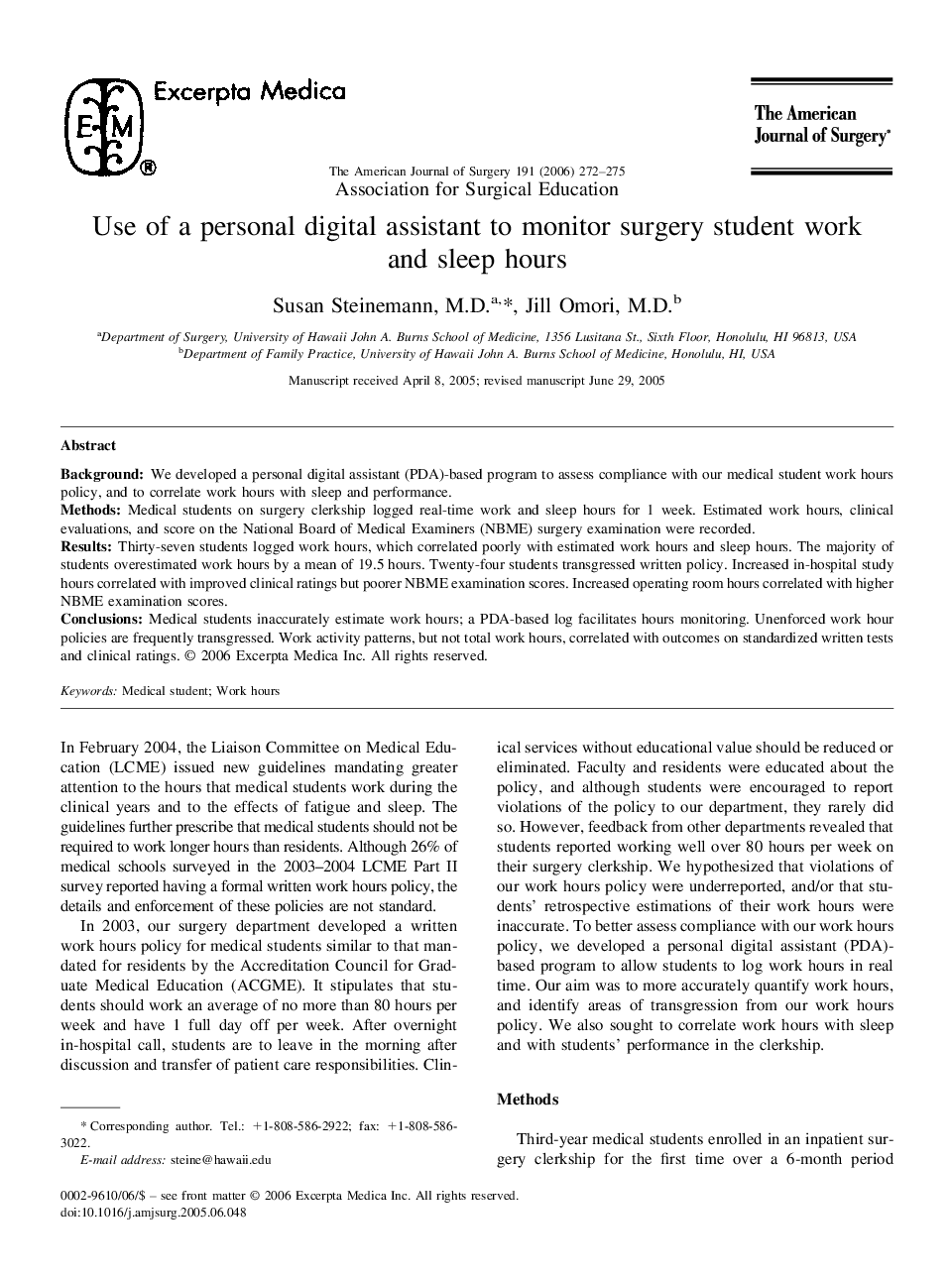| Article ID | Journal | Published Year | Pages | File Type |
|---|---|---|---|---|
| 4282112 | The American Journal of Surgery | 2006 | 4 Pages |
BackgroundWe developed a personal digital assistant (PDA)-based program to assess compliance with our medical student work hours policy, and to correlate work hours with sleep and performance.MethodsMedical students on surgery clerkship logged real-time work and sleep hours for 1 week. Estimated work hours, clinical evaluations, and score on the National Board of Medical Examiners (NBME) surgery examination were recorded.ResultsThirty-seven students logged work hours, which correlated poorly with estimated work hours and sleep hours. The majority of students overestimated work hours by a mean of 19.5 hours. Twenty-four students transgressed written policy. Increased in-hospital study hours correlated with improved clinical ratings but poorer NBME examination scores. Increased operating room hours correlated with higher NBME examination scores.ConclusionsMedical students inaccurately estimate work hours; a PDA-based log facilitates hours monitoring. Unenforced work hour policies are frequently transgressed. Work activity patterns, but not total work hours, correlated with outcomes on standardized written tests and clinical ratings.
